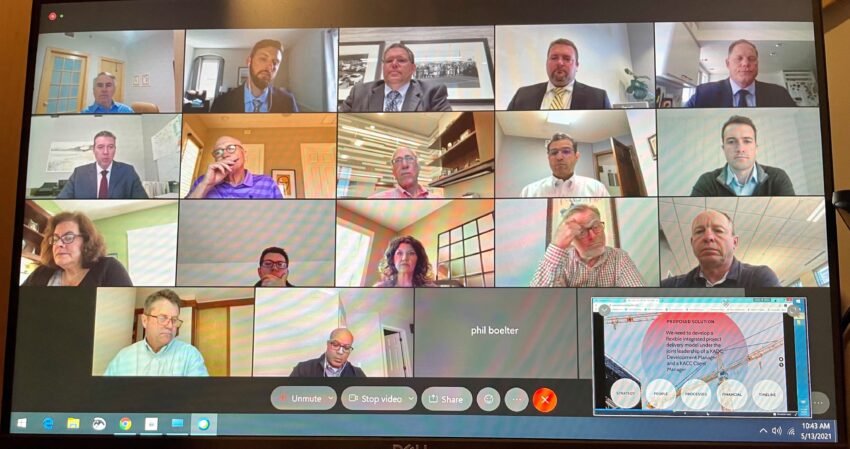Build Me Up: Longterm Leadership Success Through Executive Development
There is no doubt that people are the most valuable asset to any organization. A company’s commitment to identifying and developing talented leaders is critical to its longterm success. Kraus-Anderson partnered with the University of St. Thomas to create its Executive Development Program, or EDP, designed to provide in-depth and hands-on training in team development, empowerment and delegation, and operational decision-making; through coursework, individual and group projects, comprehensive self-assessment and individual coaching.
On the latest episode of KA’s Build Me Up podcast, Director of Professional Development Mike Smoczyk, Realty President Peter Diessner, Director of Operations Tom Roepke, and Executive Development Consultant Peter Krembs discuss the program and some of the core leadership competencies.

Developing Executive Leaders
When Mike Smoczyk began at Kraus-Anderson, he knew there were a lot of high-potential leaders within the organization. They simply lacked intentional leadership training. KA’s Leadership Development Program (LDP) began in 2016 and has seen around 60 graduates of the program since its inception. They knew a strategic next step to look after the longterm success of the company was to focus on executive-level leadership training. They selected nine high-level leaders within KA and worked with the University of St. Thomas to put together an 18-month program that would focus on core leadership competencies, as well as developing knowledge on all aspects of the company, including accounting, marketing, field operations, legal and HR.
Inside the LDP Program

Peter Diessner and Tom Roepke were two of the nine members of the cohort who recently completed the program. They both agreed that developing a leadership mindset is critical when it comes to adapting to management roles. Higher-level roles can be difficult to describe and more complex. More discrete skills are needed, such as design thinking, decision making, and managing change. One-on-one coaching sessions throughout the program allowed individuals to grow on a personal level, honing in on the strengths and weaknesses that affect their leadership styles. The program also allowed the cohort to get to know each other throughout the coursework. Research shows that in order to feel highly engaged at your workplace, you need to care personally about someone within your organization. Something like that may be difficult to quantify, but it pays off for years to come.
To learn more about executive leadership training, tune in to the latest episode of the Build Me Up podcast. You can subscribe to Build Me Up wherever you listen to podcasts.
CATEGORY: Build Me Up